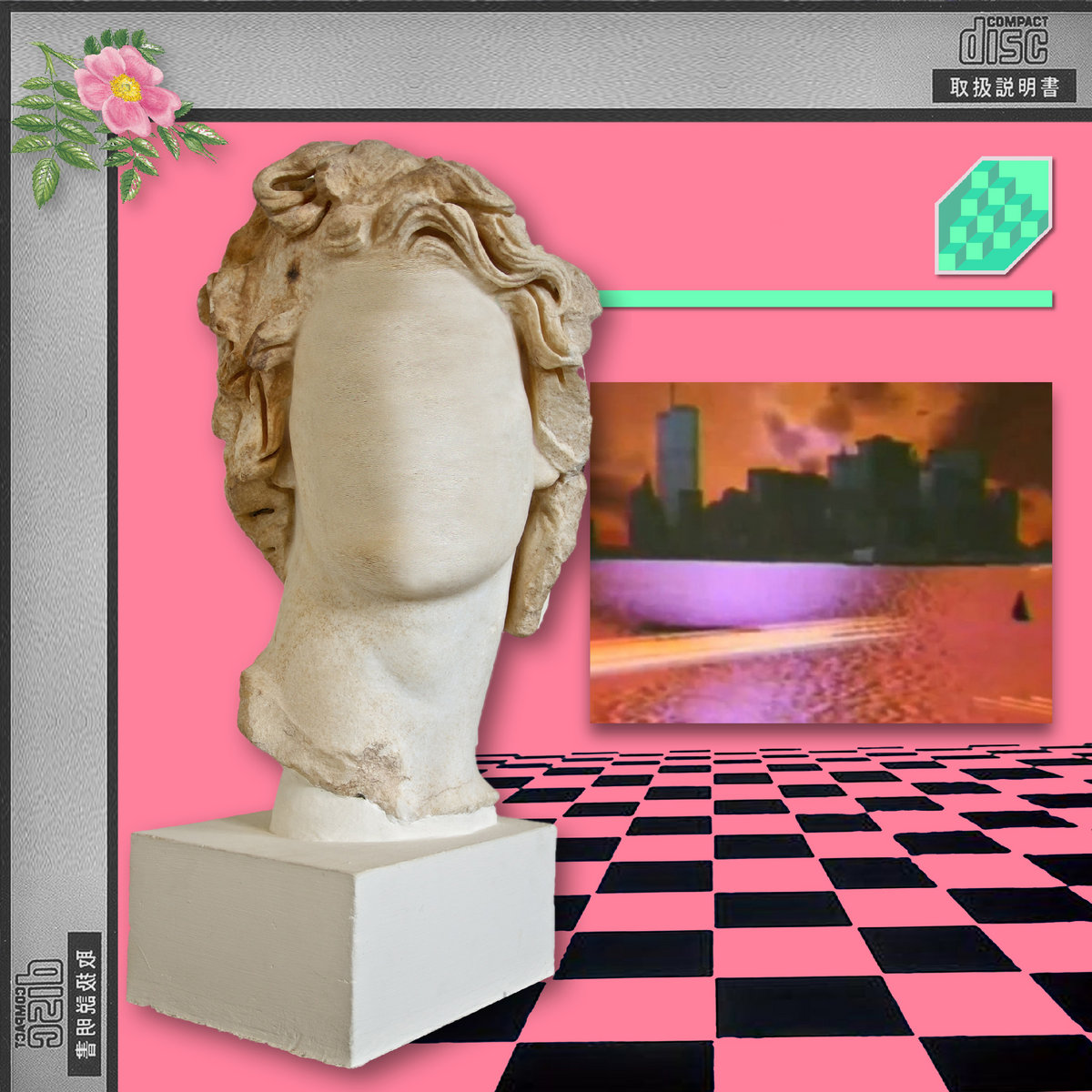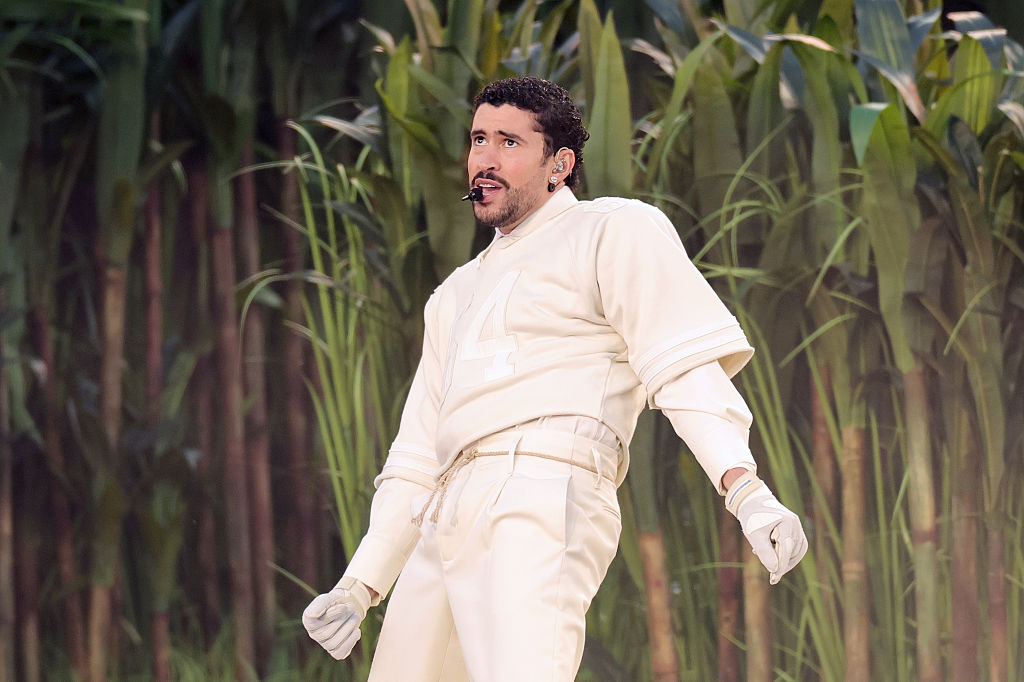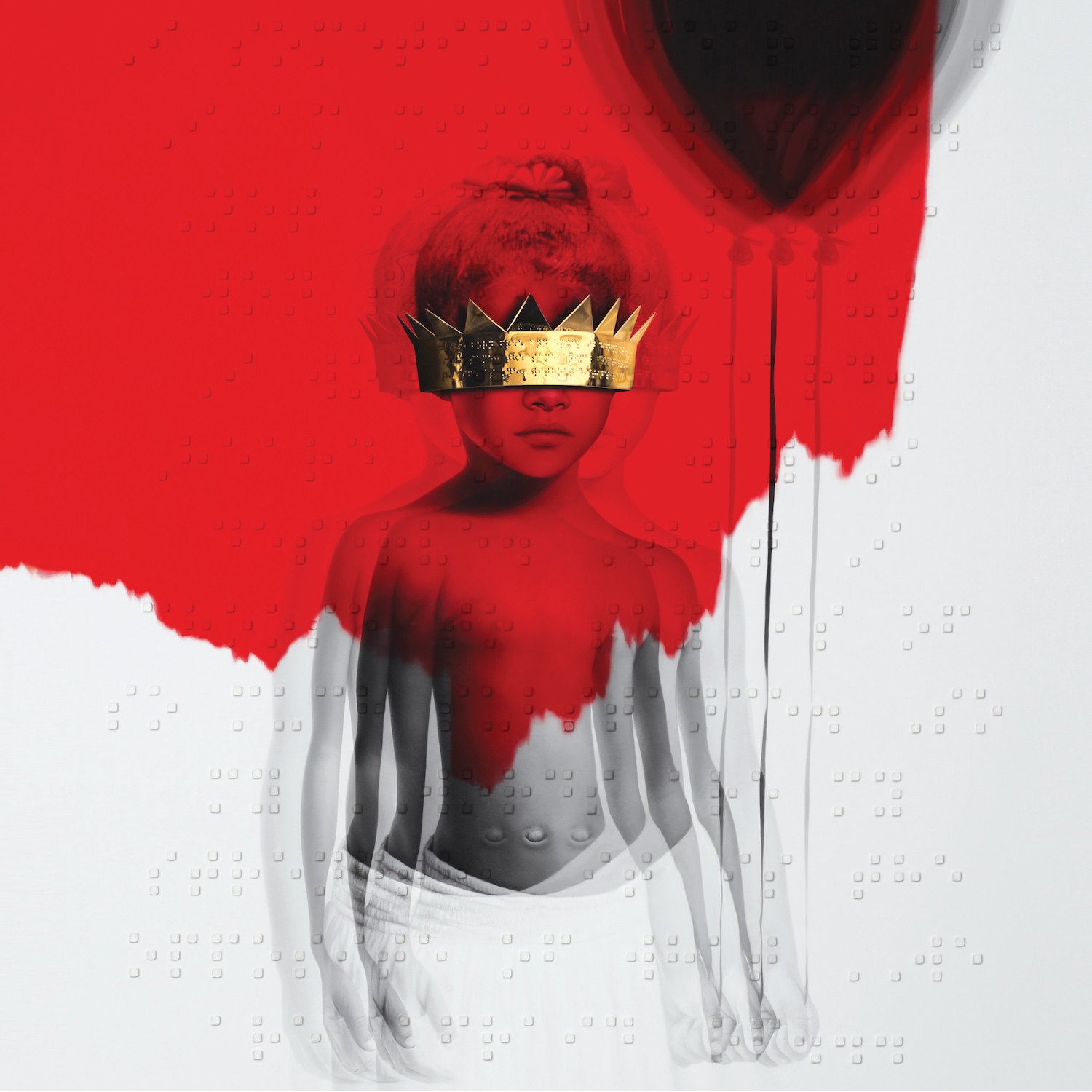- Beer On The Rug
- 2011
So many albums hitting their 10th anniversary this year have inspired vivid memories of excitedly waiting for release days (or leaks), reading reviews, and sharing moments with friends. As someone who just hit their own 31st anniversary this summer, the nostalgia has felt truly overwhelming. But the anniversary of Floral Shoppe -- the prolific Portland producer Ramona Vektroid's sole album under the name Macintosh Plus -- snuck up on me. That's what Floral Shoppe has always done best. It sneaks up on you with a sound so easy to dismiss you don’t even realize it’s hooked into you permanently.
I don’t know anyone who heard Floral Shoppe the day Vektroid uploaded it to her Bandcamp in December 2011, but over the following months it spread rapidly. I was first introduced to it as a college student volunteering for the late, great experimental music blog TinyMixTapes, where the album fueled online debate between writers either enraptured or enraged by it (it now rests comfortably in their top 10 albums of the decade). Flash forward a few more years and it was credited with inspiring an entire genre. Go further and you can see pop stars drawing from its distinct style. It's an album that’s dripped so gradually into the public consciousness, a little more every year. At the start of the 2010s it sounded like nothing I’d ever heard; a decade later it sounds like everything. Even if you’ve never heard Floral Shoppe, you’ve probably heard about it or at least come across that vacant Greek bust staring out from a sea of bright pink (its iconic artwork has joined Joy Division's Unknown Pleasures in the canon of album cover T-shirts worn by people who don’t realize it’s an album cover). But after 10 years, it has never been clearer to me that this album is so much more than just a meme.
That artwork is why I downloaded Floral Shoppe in the spring of 2012, but the music inside is why I can still remember exactly where I was standing when I hit play for the first time. I was a college student living in the Boston suburb of Somerville, walking on Holland Street towards the Davis Square metro stop. I was in a rush, late for my job at one of the city’s worst tourist traps, but the opening bars of "Booting" -- a chopped 'n' screwed warping of Sade's "Tar Baby" -- stopped me in my tracks anyway. The melting saxophone lines, syrupy slow vocals, and skipping rhythm burned into my brain and I just stood there baffled, replaying it, convinced the files were somehow broken. It made me feel dizzy and seasick. The only time I’d ever experienced that feeling before was after buying a copy of My Bloody Valentine's Loveless in high school because the cover looked cool. I sat there waiting for my ride trying to figure out whether it was my headphones, Discman, or CD that were clearly broken. In reality, I was just hearing "Only Shallow" for the first time. No matter how much shoegaze I consume I still get that same one-of-a-kind feeling every time I start Loveless. It may not have much in common sonically, but Floral Shoppe never fails to give me those same butterflies every time I start it up, no matter how many records remind me of it.
If most people spend the opening minutes of Floral Shoppe baffled, it’s the second track that gets them hooked. "Lisa Frank 420 / Modern Computing" has become such an instantly iconic song that I'm always jarred when I hear the original 1984 Diana Ross single "It's Your Move" that’s being stretched out like taffy. That song is so spritely and romantic, every line delivered like a flirty come-on, and Vektroid surgically turns it into something so lonely sounding. She imbues the song with new meaning, gently pushes the hook off balance towards a deep melancholy that captures a quality of the last decade better than nearly anything I've heard. It remains one of the defining songs of the 2010s. People sometimes deride Floral Shoppe as "just slowed down songs" -- a dismissal that now sounds as dated as "I could just make that on a laptop" did in the 2000s.
Here's how I see it today: Floral Shoppe introduced a generation to the idea that recorded material could be "played" the same as a musical instrument. My favorite example is the title track "Floral Shoppe," where a brief snippet of "If I Saw You Again" by Pages (a '70s soft rock band only known as the predecessor to Mr. Mister) gets seemingly shot through a black hole, tying itself in endless knots before stretching to infinity. This is not an original idea -- in fact, it's one of the underlying concepts of 20th century music as a whole, whether you're looking at Pierre Schaeffer’s theory of "musique concrète" in the '40s or John Oswald's "Plunderphonics" in the '80s or the evolution of DJing through software in the '90s. One of the thrills of hearing Floral Shoppe -- which samples everything from obscure New Age artists to forgotten rock bands to Turok: The Dinosaur Hunter -- is hearing a teenager almost coincidentally use these same ideas to produce pop music that so naturally resonated with countless other young people.
I'm thankful to have been able to witness Floral Shoppe's legacy grow over the last decade, but I didn’t realize how much I owe it until recently. It introduced me to the transgender experience as an oblivious cis-male at a time when trans representation felt virtually non-existent in music, when major publications misgendered people constantly and artists had to be much more closeted than now. There is an important trans reading to Floral Shoppe that I don't have the experience to tell, but one of the first times I remember correcting someone for misgendering an artist and really realizing my responsibility in that was through this album. It gave me new awareness then -- and more importantly, if this album inspired a trans person to be more open about themselves or showed that there's a place for them to make art too, then its value is incalculable.
Like a laser-guided missile in pink and green, Floral Shoppe also blew up my concept of "taste" -- a completely bullshit term if there ever was one -- and made me think less about music in terms of "good" or "bad" and more about why I was reacting one way or the other. I started as an intern at this site in 2013, a year after hearing Floral Shoppe, and internalizing the lesson it taught me gave me a confidence in writing I simply didn’t have before. The first thing I ever pitched Stereogum was a Band To Watch on SAINT PEPSI (better known now as Skylar Spence), and I spent a lot of that piece excitedly writing about Vektroid. Floral Shoppe made me genuinely want to pursue music writing and see the real importance in giving attention to artists that are off the radar. It might have been the first time I ever stumbled onto Bandcamp -- a site I now write a column for shining a light on self-released artists.
On some level I think I'm always digging for another Floral Shoppe, for that same feeling. The truth is that feeling is everywhere now. Ten years have taught me that this record is not some weird outlier or oddity or cult classic. It's a key early example of how a new generation hears, processes, and makes music. The next Floral Shoppe is already out there right now, just waiting to be found. So let's go find it.






